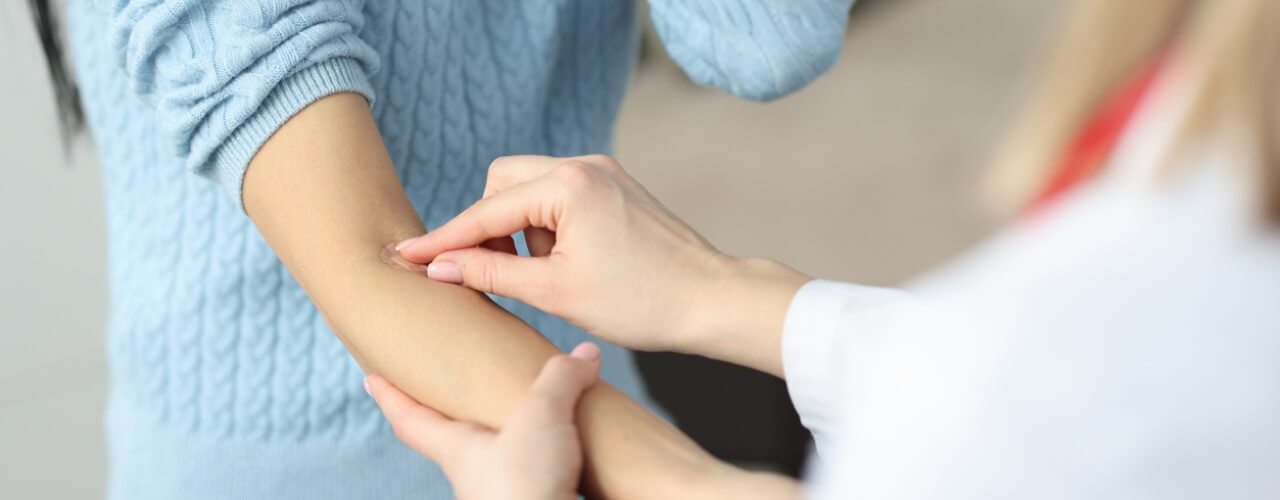Why Your Sinuses Get Worse in the Winter
As winter sets in, many of us grapple with increased sinus discomfort. But why does this happen more in the colder months? Let’s understand the reasons behind worsening sinus issues in winter and discuss effective sinus pain treatment options.
Understanding Sinuses and Sinus Pain
Sinuses are air-filled spaces in the skull connected to the nasal cavity. They produce mucus that helps keep the inside of your nose moist, which protects against dust, allergens, and pollutants. They also play a role in regulating the temperature and humidity of the air we breathe in.
Sinus pain typically arises from inflammation in these cavities, often due to infections, allergies, or changes in atmospheric pressure. When the sinuses become inflamed, they can't drain mucus effectively. This leads to a feeling of congestion and pressure, often accompanied by pain in the forehead, cheeks, and around the eyes. In some cases, sinus inflammation can also cause headaches, toothaches, and pain in the upper jaw.
Why Winter Worsens Sinus Problems
This irritation can lead to increased sinus pain and discomfort as the dry air strips moisture from the mucous membranes, reducing their effectiveness in trapping and removing irritants.
Indoor heating compounds this problem by reducing humidity levels in our homes and workplaces. The warm, dry environment created by heaters can make nasal passages more prone to dryness and irritation, increasing the risk of infection as the natural defence mechanisms of the nose are compromised.
Winter also often means more time indoors, where allergens like dust, pet dander, and mould can be more prevalent. Without the regular airing out of spaces and the presence of indoor heating, these allergens can accumulate and worsen sinus issues. The lack of adequate ventilation can lead to higher concentrations of these allergens, triggering inflammation in the sinus passages. The combined effect of dry air, reduced humidity, and increased indoor allergens creates a perfect storm for sinus problems in winter, leading to more frequent and severe sinus pain and related symptoms.
Common Sinus Pain Symptoms in Winter
Symptoms of sinus pain in winter include:
- Persistent Headaches: Sinus-related headaches are often concentrated around the forehead, cheeks, and bridge of the nose. The pain typically worsens when bending forward or early in the morning.
- Facial Pressure and Pain: Inflamed sinuses can cause a feeling of pressure and pain in the facial region, particularly around the eyes, nose, and cheeks.
- Nasal Congestion: Swollen sinuses can lead to a blocked nose, making breathing through the nose difficult and often leading to a congested feeling.
- Reduced Sense of Smell and Taste: As the nasal passages become congested, it can impair your ability to smell and taste, affecting the enjoyment of food and drink.
- Fatigue: Chronic sinus pain can lead to a general feeling of tiredness and lethargy as the body expends energy fighting inflammation and infection.
- Sore Throat and Cough: Postnasal drip caused by sinus issues can lead to a persistent sore throat or cough, which may worsen at night.
Recognising these symptoms early and seeking appropriate treatment is crucial for managing sinus pain effectively, especially in the challenging winter months.
Preventative Measures and Lifestyle Tips
Managing sinus pain in winter involves both proactive and preventative measures. Key strategies include:
- Using a Humidifier: A humidifier can add much-needed moisture to the air in your home, helping to prevent the drying out of nasal passages.
- Staying Hydrated: Drinking plenty of fluids keeps the mucous membranes moist and more effective in trapping and removing irritants.
- Regular Cleaning: Regularly cleaning your living spaces helps reduce the accumulation of allergens like dust, pet dander, and mould spores.
- Frequent Hand Washing: This simple yet effective practice can significantly reduce the risk of viral infections exacerbating sinus problems.
- Balanced Diet and Exercise: A balanced diet rich in vitamins and minerals supports the immune system, while regular exercise can improve overall respiratory health.
- Adequate Sleep: Ensuring sufficient sleep helps the body to repair and fight off infections.
By incorporating these lifestyle changes and practices, you can help reduce the risk and severity of sinus pain during the winter months.
Sinus Pain Treatment Options
Treatment for sinus pain ranges from over-the-counter remedies like decongestants and nasal sprays to more comprehensive approaches under professional guidance. If sinus pain persists despite home care, it's advisable to seek professional sinus pain treatment. The Harley Street ENT Clinic offers a range of treatments for nose and sinus problems, each tailored to address specific issues and symptoms. Here's a summary of the options available:
- Continuous Positive Airway Pressure (CPAP): Used for treating obstructive sleep apnoea and snoring caused by narrowed or blocked airways.
- Septoplasty: A surgical procedure to correct a deviated septum, improving airflow and addressing problems like recurring sinusitis and rhinitis.
- Septorhinoplasty: Combines septoplasty with rhinoplasty to correct both a deviated septum and visible issues with the nose, addressing breathing problems and aesthetic concerns.
- Turbinate Reduction: Surgery to improve airflow in cases of large turbinates causing narrow nasal passages, performed when medication isn't sufficient.
- Removal of Foreign Bodies: Removal of objects lodged in the nose that cause discomfort or breathing difficulties using various tools.
These treatments are provided by experienced ENT specialists, ensuring a tailored approach to each patient's unique needs.
Managing sinus pain effectively requires a combination of self-care and professional advice. If you're struggling with persistent sinus pain, don't hesitate to contact our clinic. Our team provides expert care and effective sinus pain treatments tailored to your needs.












